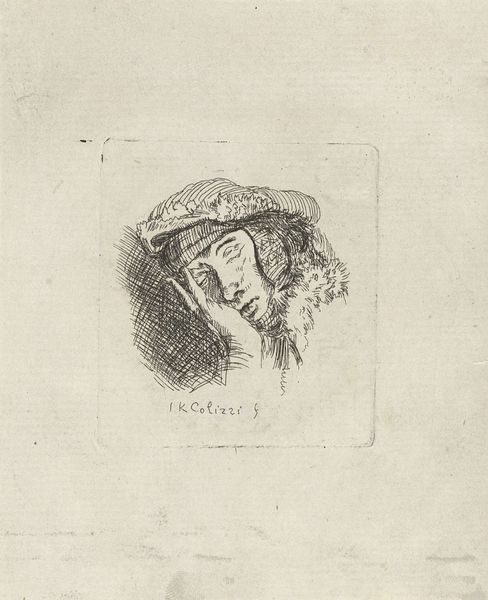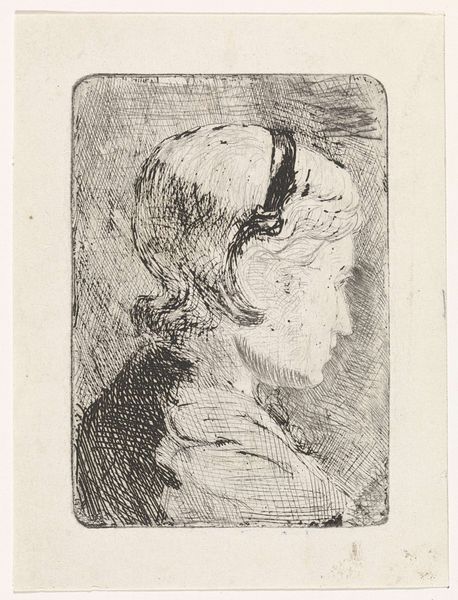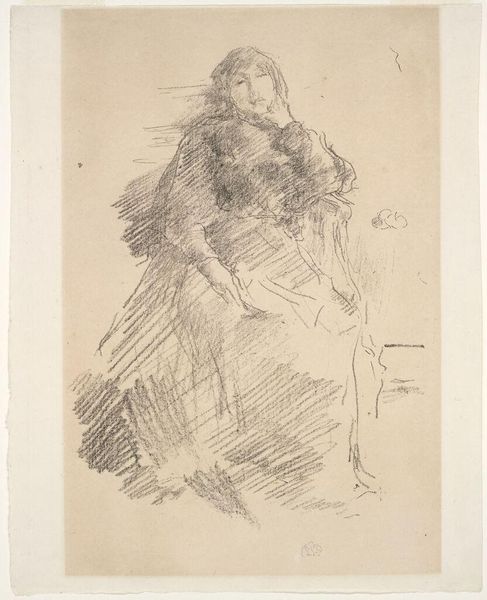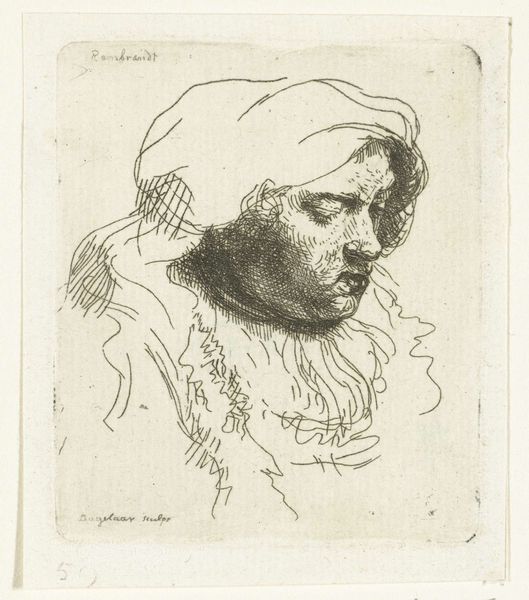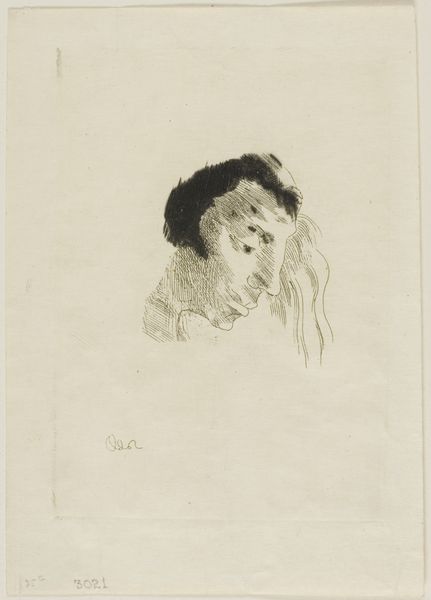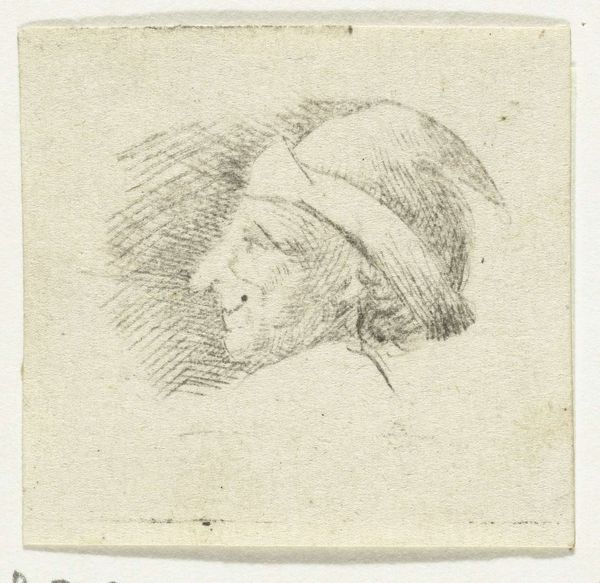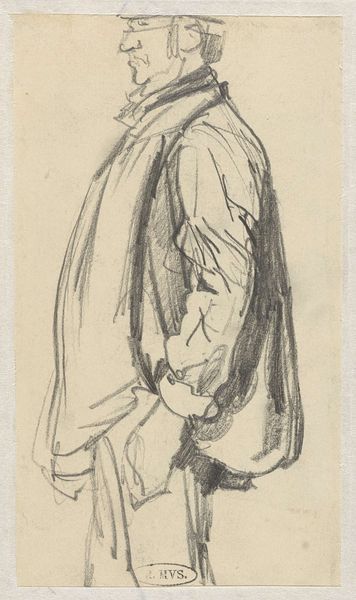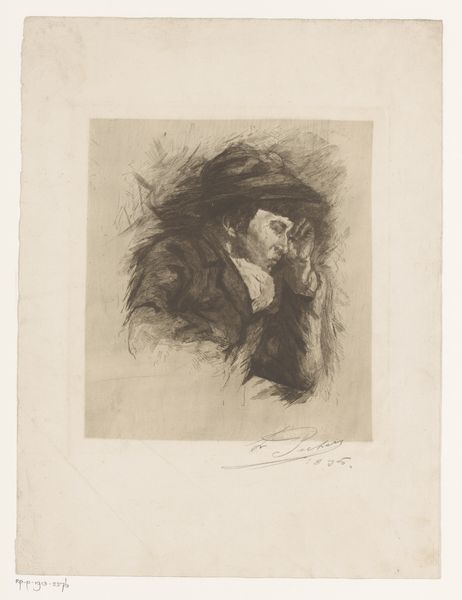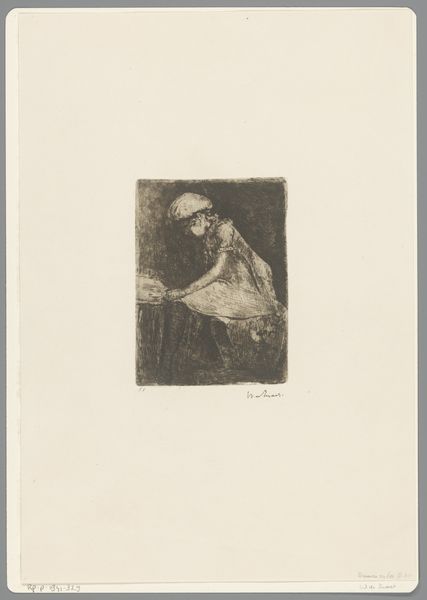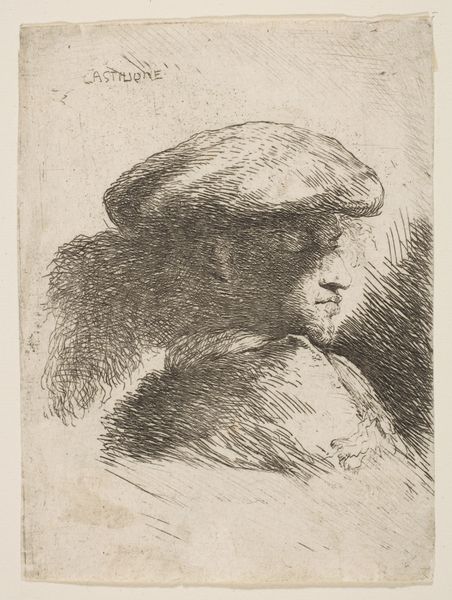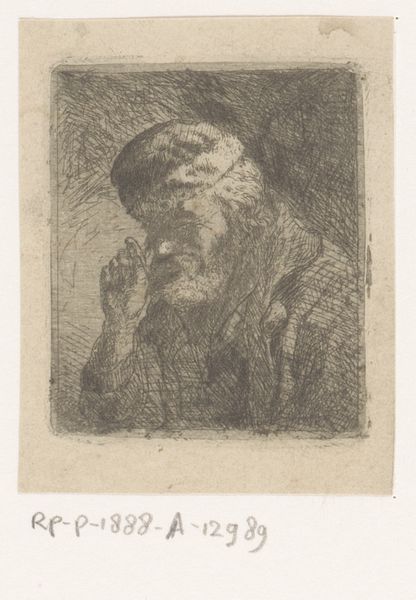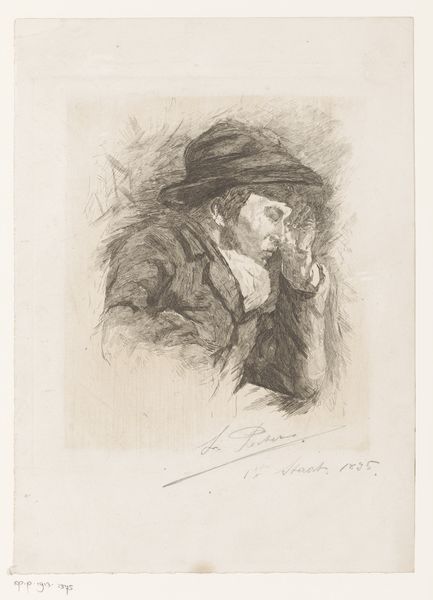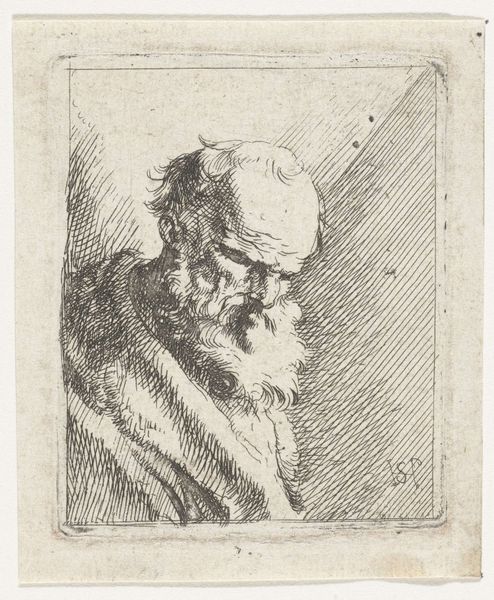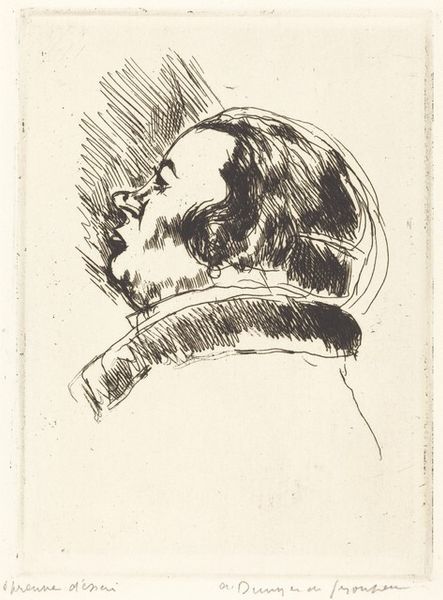
drawing, etching, ink
#
portrait
#
drawing
#
pen illustration
#
etching
#
ink
Dimensions: height 61 mm, width 52 mm
Copyright: Rijks Museum: Open Domain
Ernst Willem Jan Bagelaar created this etching of a sleeping woman with her hand under her head in the Netherlands, sometime between 1775 and 1837. The image speaks to the social codes around sleep and gender at the time. During this era, representations of women were laden with expectations of chastity and virtue. Bagelaar subtly engages with these expectations. The woman is depicted in a vulnerable, unguarded state, yet there's a gentleness to the portrayal that avoids any hint of impropriety. The act of sleep, often associated with vulnerability, becomes a moment of quiet introspection. We might consider how the rise of the middle class in the Netherlands influenced this kind of intimate, domestic scene. Was Bagelaar commenting on the changing roles of women in society? To understand it better, we could research the prints and printmaking industry in the Netherlands at this time. Looking at social histories of gender in the Netherlands could reveal more about the norms that Bagelaar was engaging with through his art.
Comments
No comments
Be the first to comment and join the conversation on the ultimate creative platform.
